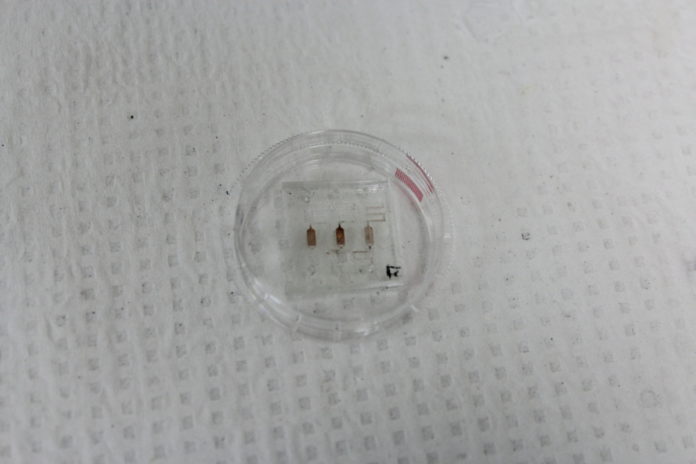Scientists at the McGill University have developed ‘lab on a chip’ that holds the potential of detecting small amounts of disease-causing bacteria within a few minutes. In addition, the system can analyze very small volumes of culture media containing bacteria, for example, E. coli and a strain of S. aureus impervious to methicillin, an antibiotic used to treat bacterial infections.
The device is originally composed of nano-sized islands, with a thickness of a single human hair, which act as bacterial traps or snares. Furthermore, this new lab-on-a-chip, which is relatively inexpensive and easy to make, could also analyze samples from urine, blood or nasal swabs.
Sara Mahshid, designer of the device said, “Speed is of the essence because some bacterial infections can cause serious health problems and sometimes lead to death. With a fluorescent microscope, the device we’ve developed can confirm the presence of bacteria in just a few minutes. I hope one day clinicians will use our device to deliver faster diagnostics, start treatment much more quickly and, ultimately, save lives.”
Mahshid and her team, who just published their work in the journal Small, now hope to test their device on clinical samples, a necessary step before doctors are able to use such a device in a hospital setting.
